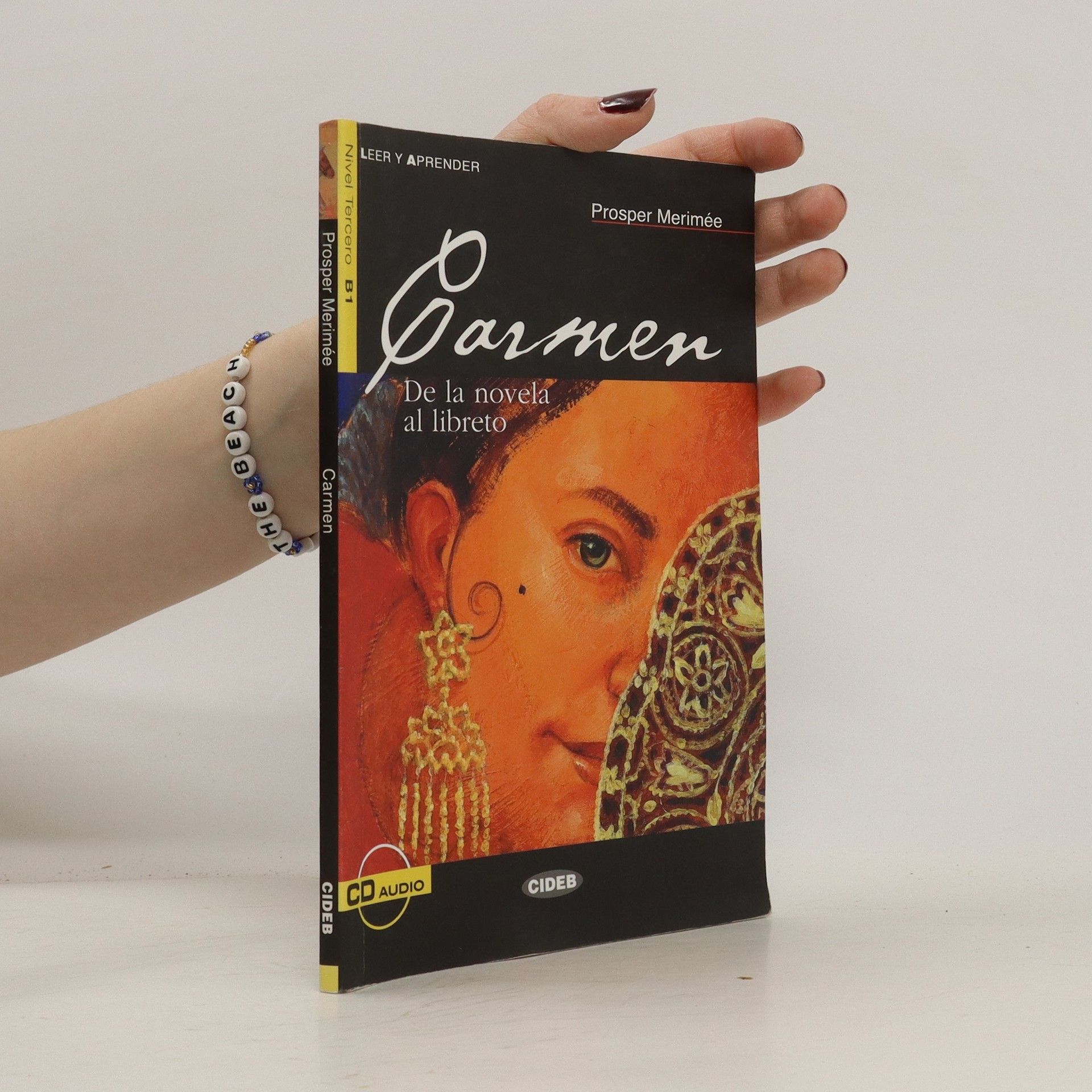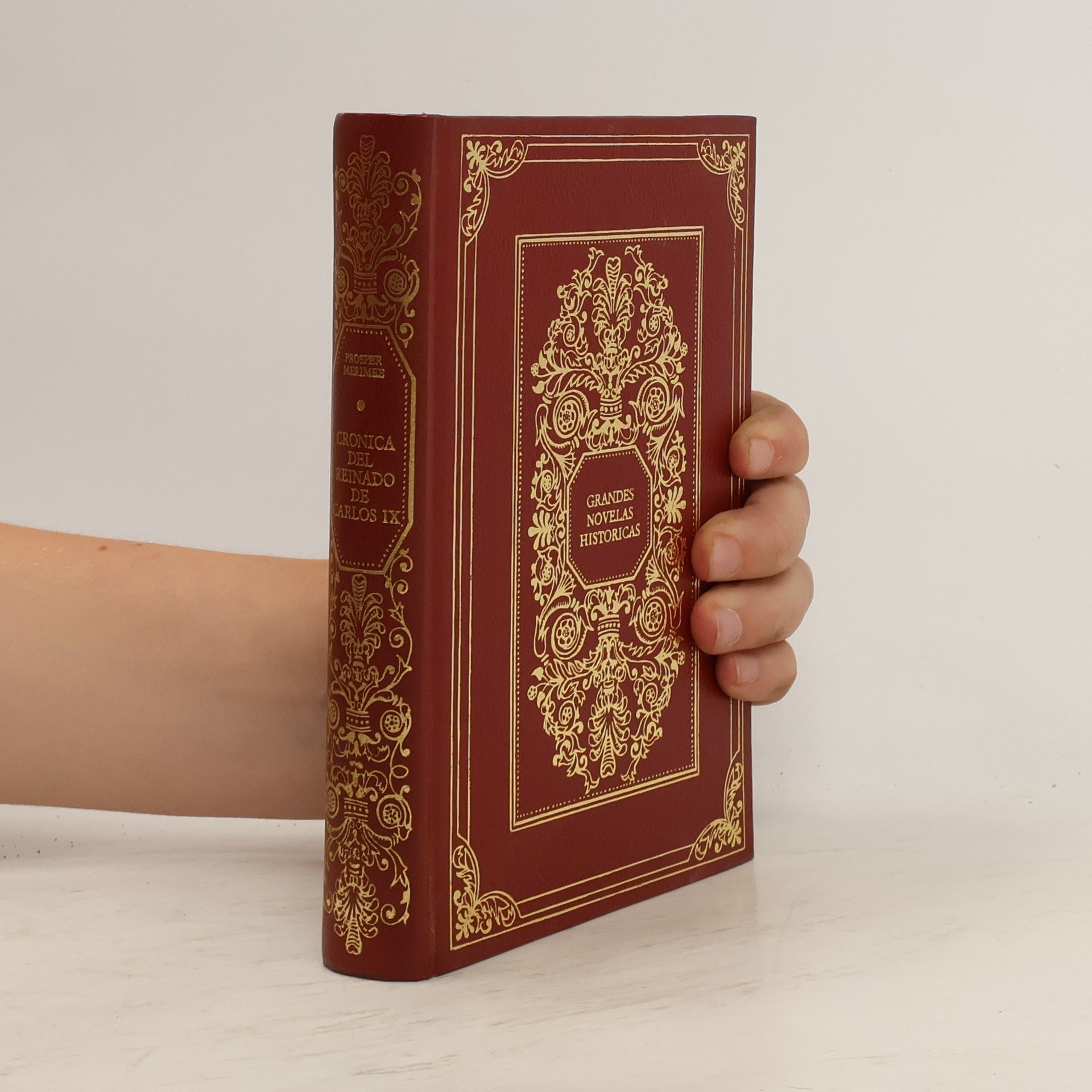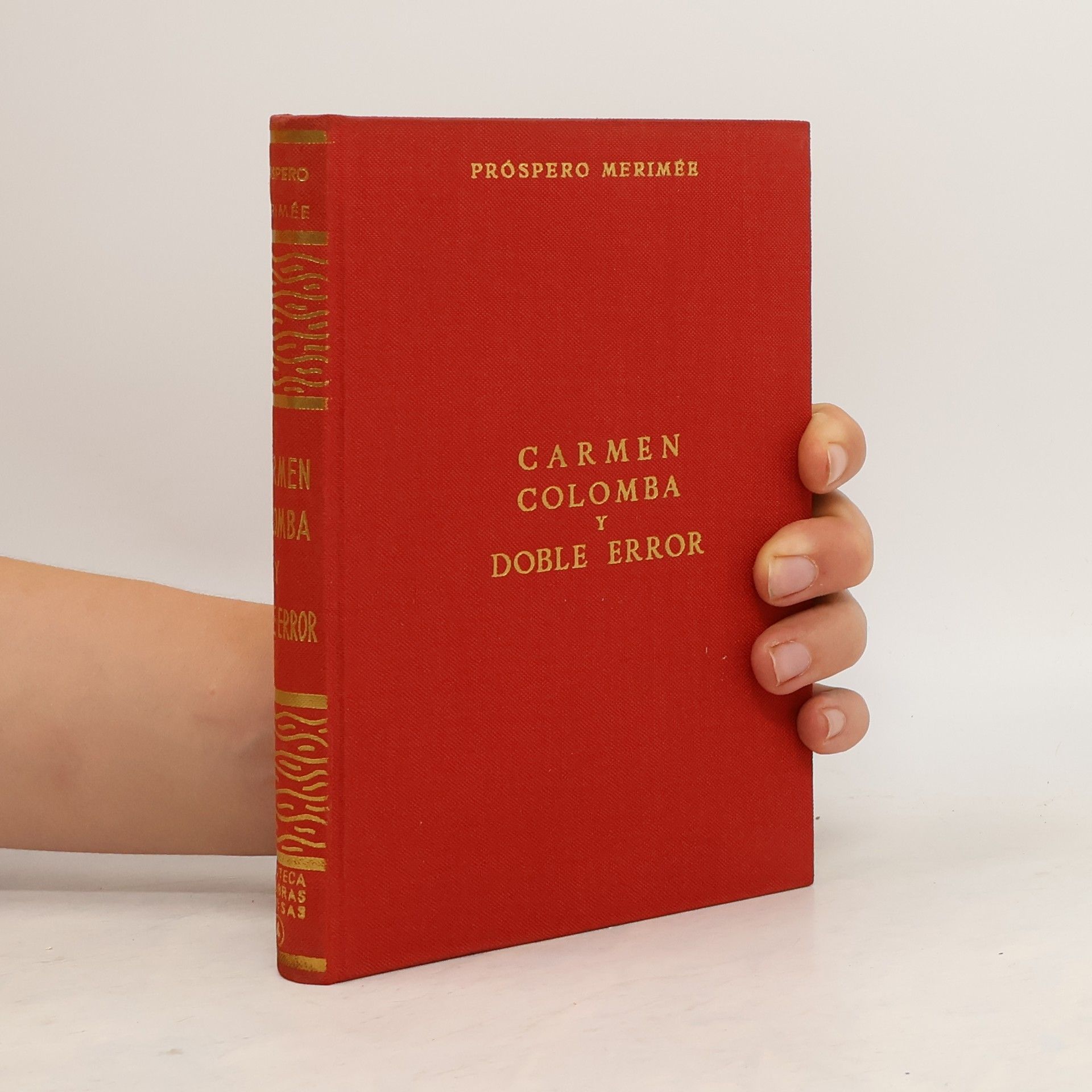Carmen
- 207 páginas
- 8 horas de lectura
Prosper Mérimée, dramaturgo y escritor francés, se sintió cautivado por el misticismo, la historia y lo inusual, inspirándose en la novela histórica y el drama psicológico. Sus relatos a menudo se desarrollan como misterios ambientados en evocadores lugares extranjeros, en particular España y Rusia. Más allá de su ficción, Mérimée fue fundamental para introducir a los lectores europeos en la literatura rusa a través de sus traducciones. Su aguda visión arqueológica y su profunda apreciación por la historia y el arte se reflejan en sus informes académicos y en sus narrativas de factura distintiva.







Narración de amor y de muerte. Esta breve novela de Mérimée nos narra el encuentro entre la gitana Carmen, sensual y caprichosa, y el brigadier Don José, quien, subyugado por ella, llega a ser su amante y por su culpa se convierte en contrabandista, bandolero y asesino. ¿Cuál será el final de los héroes de esta tragedia? El personaje apasionado de Carmen ha inspirado una ópera célebre, cuyo autor es Georges Bizet.
The book offers the first complete English translation of a collection of folk literature from the former Illyrian Provinces, featuring diverse genres such as ballad lyrics, folk tales, and even a stage play fragment. Each piece is presented in prose form and accompanied by detailed footnotes that provide historical and sociological insights into these literary "discoveries." This unique blend of poetry and scholarly commentary enriches the understanding of the cultural heritage of Dalmatia, Bosnia, Croatia, and Herzegovina.
Focusing on accessibility, this book is a reproduction of a historical work published by Megali, a house dedicated to producing large print editions for individuals with impaired vision. The initiative aims to enhance the reading experience for those who may struggle with standard text sizes, ensuring that important historical narratives remain available to a wider audience.
Focusing on accessibility, this publication by Megali emphasizes the importance of making historical works available in large print format. It aims to enhance the reading experience for individuals with impaired vision, ensuring that classic texts can be enjoyed by a broader audience. The commitment to preserving original works while improving readability highlights the publisher's dedication to inclusivity in literature.
(Vocal Score). French/English. Translated by Martin.
Dans le maquis corse, près de Porto-Vecchio, vivent Mateo Falcone et sa famille. Réputé pour être aussi "bon ami" que "dangereux ennemi", célèbre pour son adresse au tir, Mateo Falcone ne craint rien ni personne. Mais s'il est une chose qu'il ne peut accepter, c'est la trahison. Pour ce père, pour ce Corse, il faudra choisir entre son fils et son honneur... Remarquables par leur composition, les quatre nouvelles de ce recueil - "Mateo Falcone", "Tamango", "La partie de trictrac" et "Le vase étrusque" - abordent les différentes facettes de la passion, dans le style sobre et élégant propre à leur auteur.